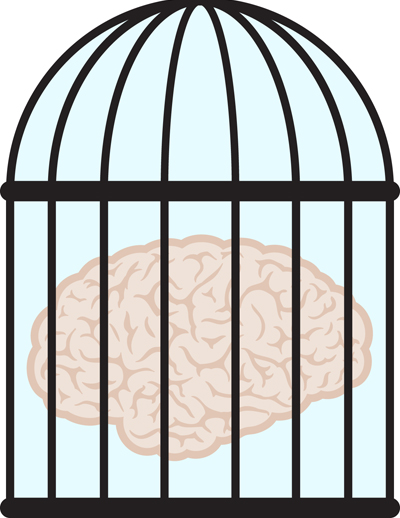
Your boss is hassling you. You have a presentation to give and no time to prepare. Your partner is threatening to leave because you spend too much time at work. In case these pressures aren’t enough, the one person you depend on for support at work has just gone off sick.
If this was your situation, would you feel stressed? Most would, some wouldn’t.
Those who wouldn’t can be described as “stress resilient”. People who are stress resilient focus only on what needs to be done and calmly take appropriate action, despite significant or multiple pressures.
Stress costs business billions every year. It diminishes motivation and effectiveness and is considered to be a root cause of 80% of absence from work.
Most stress management trainings focus on persuading us to resolve our sources of stress. Or they teach relaxation techniques. They may even place the responsibility on the organisation. These are fine in themselves, but seldom enough to enable us to avoid stress.
A truly stress-resilient person never experiences stress, irrespective of whether problems can be contained or quickly resolved, needs no relaxation techniques and doesn’t depend on protection from others to avoid stress.
So what distinguishes someone who is stress resilient? The most significant factor is the way we think about issues and this can be changed with training. Stress generally involves “resisting what is”, which means wanting something to be different right now. Either we’re wanting something that’s happened not to have happened, or we’re wanting a situation that exists right now not to exist right now. The corollary is “accepting what is”.
In our culture, the word “acceptance” is generally associated with resigning ourselves to situations or not trying to change them and this is often seen as weak.
“Accepting what is” is very different. It means not wishing something was ALREADY different. Wishing things were already different is wishing for the impossible. Almost all unhappiness, dissatisfaction and stress involves wanting something to be already different. The only exception is worrying about the future.
“Accepting what is” is helpful in any challenging situation, whether or not we can immediately change it. When we “accept what is” we can focus only on what we need to do to resolve the situation or improve the future.
If I’m under pressure to meet a deadline and I’m unhappy or stressed about this, I’m not “accepting what is”.
“Accepting what is” involves saying to myself, “this is the situation right now. It makes no sense to wish it were already different and I’ll gain nothing by doing so”. If I totally “accept what is” I can focus on what I need to do to resolve the issue or make it different: meet the deadline, ask for help, change the deadline or whatever.
People who “accept what is” focus on solutions not problems, so they don’t feel stressed. Some people naturally “accept what is”, but for most it’s a skill, which like any other skill, needs to be learned
and practiced.
One technique that’s been used to train thousands to “accept what is” on a daily basis, is called Positive Acceptance. It entails creating a habit of noticing whenever we’re wishing something were already different (always the case whenever we’re dissatisfied about anything), recognising this is irrational as nothing can ever be already different, dropping the thought and refocusing on what we can do to improve the next moment or
the future.
Dropping a negative thought might initially seem challenging. But when we’ve carried out the first two steps, it becomes surprisingly easy. If you’d like to try, I suggest you start with small things, such as burnt toast and red traffic lights and build up. It takes practice before we can apply it in truly stressful situations.
If we’re upset or experiencing any emotion, we usually need to wait for the emotion to subside before using Positive Acceptance. With practice, “accepting what is” becomes more automatic and regret, dissatisfaction and stress gradually disappear from our lives.
Through this training, everyone can be taught how to eliminate regret, worry, dissatisfaction and stress, become more motivated, effective and fulfilled, achieve more, improve their relationships and gain more satisfaction from their work and their whole lives.













